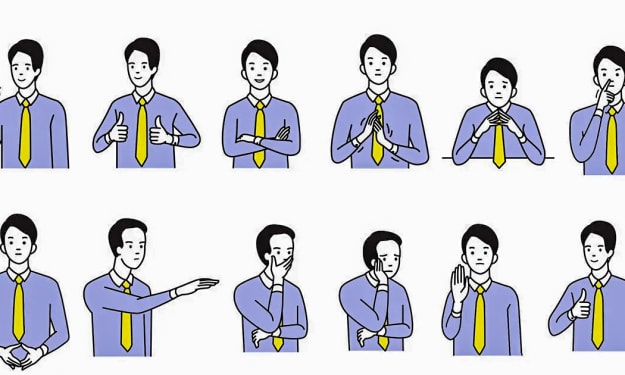Scientific Perspectives on Reincarnation
Analyzing Past-Life Regression Studies
Introduction
The concept of reincarnation, with its profound implications for human existence, has intrigued philosophers, religious scholars, and scientists for centuries. While reincarnation remains a predominantly spiritual and philosophical belief in various cultures, scientific investigations have attempted to shed light on its validity through past-life regression studies. This article explores the scientific perspectives on reincarnation, focusing on the practice of past-life regression and its implications for understanding consciousness, memory, and the nature of the human mind.
The Past-Life Regression Method
Past-life regression is a therapeutic technique used to access and explore alleged memories of past lives that may be affecting an individual's current emotional or psychological state. The process is usually facilitated by a trained therapist who guides the individual into a deeply relaxed state, encouraging them to recall past-life memories or experiences. Advocates of past-life regression argue that these memories, if genuine, can provide insights into unresolved issues, fears, and traumas carried over from past lives.
Historical Roots and Development
The origins of past-life regression can be traced back to early forms of hypnosis and spiritual practices. In the late 19th and early 20th centuries, figures like Madame Blavatsky and Edgar Cayce contributed to the popularization of past-life regression as a means of accessing hidden memories and spiritual insights.
In the 1950s, psychologist and hypnotherapist Dr. Arnall Bloxham pioneered the use of past-life regression for therapeutic purposes. His work paved the way for later researchers to explore the potential therapeutic benefits of exploring past-life memories.
The Debate on Validity
The scientific community remains deeply divided on the validity and interpretation of past-life regression experiences. Critics argue that the memories accessed during regression sessions may be products of the individual's imagination, confabulations, or the therapist's suggestions. Skeptics point to the lack of empirical evidence and the subjective nature of the experiences reported in past-life regression.
On the other hand, proponents of past-life regression claim that while not all memories may be genuine, some cases display remarkable consistency, accuracy, and details that cannot be easily dismissed. They argue that these accounts warrant further investigation and should not be summarily dismissed as mere fabrications.
Case Studies and Clinical Observations
Researchers and therapists who support past-life regression have documented numerous case studies detailing the experiences of their clients. These case studies often recount emotionally charged memories of different time periods, cultures, and geographic locations. Some individuals report recalling specific names, events, and places that correlate with historical records, raising intriguing questions about the nature of memory and consciousness.
Notable cases, such as the work of psychiatrist Dr. Ian Stevenson, who studied children who claimed to remember past lives, have provided intriguing evidence. Stevenson's research documented cases of young children who recalled detailed memories of previous lives, often including information that the children could not have learned through normal means.
The Role of Suggestibility and Imagination
Critics of past-life regression emphasize the role of suggestibility and imagination in shaping the reported memories. During regression sessions, individuals may be influenced by leading questions from the therapist, external cultural influences, or preconceived ideas about reincarnation.
Psychologists caution that the human mind is highly susceptible to suggestion, and individuals in a relaxed or hypnotic state may unknowingly generate fictional narratives that they later believe to be genuine past-life memories.
Reincarnation and Neuroscience
Understanding past-life regression experiences from a neuroscientific perspective remains a challenging task. Some researchers have explored the neural correlates of hypnotic states and altered consciousness, attempting to elucidate how certain brain regions might contribute to the generation of past-life memories.
Functional brain imaging studies have shown that certain brain regions associated with memory, imagination, and self-referential processing are active during hypnotic states. However, the interpretation of these findings concerning past-life memories remains speculative, and more research is needed to establish a definitive link between brain activity and the veracity of past-life claims.
Relevance to the Nature of Consciousness
The exploration of past-life regression has broader implications for our understanding of consciousness and the nature of the mind. The phenomenon raises intriguing questions about the nature of memory storage, the continuity of consciousness across lifetimes, and the potential existence of a collective or shared consciousness.
From a philosophical standpoint, the experiences reported in past-life regression challenge conventional notions of personal identity and raise the question of whether consciousness can transcend the boundaries of individual lifetimes.
Conclusion
The study of past-life regression offers a fascinating intersection of spirituality, psychology, and neuroscience. While the scientific community remains cautious about drawing definitive conclusions regarding the reality of past-life memories, the phenomenon continues to provoke curiosity and spark debates about the nature of consciousness and memory.
As research and interest in altered states of consciousness and the exploration of the human mind continue to grow, the investigation into past-life regression will likely remain an intriguing area of study, contributing to our ongoing exploration of the human experience and the mysteries of life and consciousness.






Comments
There are no comments for this story
Be the first to respond and start the conversation.